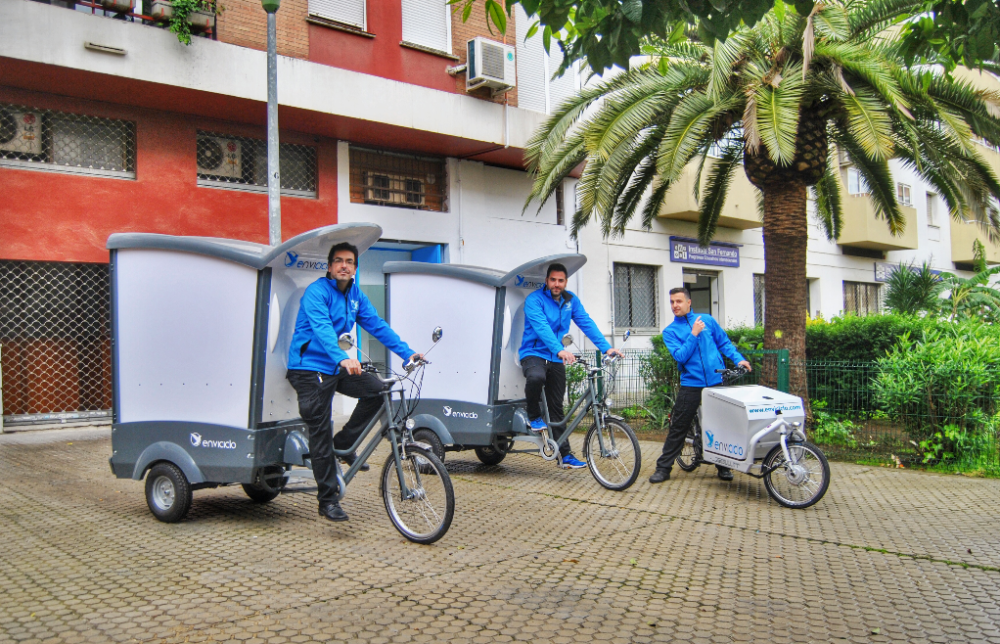TORONTO — Moving goods by bike has just started to catch on in Toronto, and has major potential to expand, according to a new report from the Pembina Institute, Cyclelogistics: Opportunities for moving goods by bicycle in Toronto.
The report examines the current use of cargo bikes and service modes in Toronto (including courier, business to business, and last mile deliveries), and the barriers and opportunities for expansion. The findings show that of these modes, expanding cyclelogistics for last mile deliveries would have the most impact in relieving congestion and improving air quality in downtown Toronto. Additionally, pedal-only bicycles are most often used to move goods and Toronto has yet to take full advantage of larger capacity bikes to replace delivery vehicles.
The report makes recommendations to expand the cyclelogistics sector in Toronto. They include provincial and municipal governments identifying and classifying electric cargo bikes, and the City of Toronto introducing cargo bikes into their own fleet, to lead by example.
Introducing more cargo bikes onto Toronto streets brings several co-benefits: it saves businesses money and time, as bikes can often make more deliveries in a shorter amount of time. It also raises the visibility and profile of cycling, and helps move cyclelogistics from a niche goods movement mode to a widely adopted solution for last mile deliveries. Communicating these benefits to businesses will be key to expanding cyclelogistics in Toronto.
Quick facts
- There are eight cargo bike manufacturers in Canada, including in Toronto, Guelph, Halifax, Vancouver, Montreal and Quebec City. Increasing the number of cargo bikes on the road will help stimulate local manufacturing industries.
- Vans, light-duty trucks and SUVs represent 16.4 per cent of greenhouse gas emissions in Toronto.
- Freight emission in Canada are projected to grow and surpass passenger emissions by 2030
- A cyclelogistics initiative in Manchester, U.K. found that vans are able to do 6-8 drops per hour, while electric cargo bikes can make 10-12 drops per hour.
Quotes
“Expanding the cyclelogistics sector is a really exciting opportunity for Toronto. It will help relieve congestion, save businesses time and money, and help raise the profile of cycling downtown. Our recommendations include some low-hanging fruit that will make adopting cyclelogistics more attractive to retailers and delivery companies.”
— Nithya Vijayakumar, senior advisor, transportation and urban solutions, Pembina Institute
[30]
Visit the Pembina Institute’s website to download a copy of Cyclelogistics: Opportunities for moving goods by bicycle in Toronto.
Contact
Kelly O’Connor
Communications lead
416-220-8804
Background
Report: State of Freight (June 2017)
Report: Improving Urban Freight Efficiency (April 2017)




